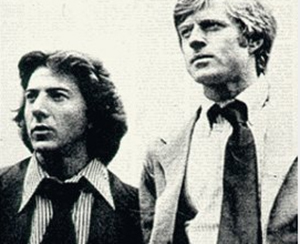
Internet arguments might be less vile and more measured if people identified themselves when they spoke.
That’s the whole point of the Facebook’s real-name policy, a controversial move among social-media stalwarts when I first started covering the Internet industry in the mid-2000s. Facebook remains a more hospitable place than, say, 4chan.
But using your real name to say certain things can be very dangerous. Not even classified things – it may be as innocuous as differences of opinion that put you on the margins of whatever intellectual fad is dominant at the moment.
Vanderbilt Hustler opinion editor Molly Corn wrote a stinging rebuke of anonymity with the premise that it’s not dangerous to say what you think anymore:
From the thinkers of the scientific revolution who feared that their findings would be marked heretical, to Cuban revolutionaries who were killed during Batista’s fascist regime, radical ideas are often powerful and dangerous. There was a time when a simple difference of opinion from official policy was treasonous, and thus justification for a death sentence. …
However, in a nation that aggressively protects the right of just about anyone to say wildly offensive things in order to protect the greater spirit of the First Amendment, we have hundreds of people hiding behind anonymous comments, submissions and mobile apps — and to what end?
The even more ironic part of this quest for anonymity is that many of the ideas that people are terrified to make any commitment to aren’t even particularly controversial.
 Corn – who discloses she was called “the biggest cunt at Vanderbilt” on Yik Yak, a bastion of anonymity – seems to think people only want to kvetch about Greek life, grade inflation or the Hustler itself: “Why is it that you’re unwilling to commit even to simple statements that probably won’t even stir the pot?”
Corn – who discloses she was called “the biggest cunt at Vanderbilt” on Yik Yak, a bastion of anonymity – seems to think people only want to kvetch about Greek life, grade inflation or the Hustler itself: “Why is it that you’re unwilling to commit even to simple statements that probably won’t even stir the pot?”
You’re a coward if you won’t attach your name to your speech in 2015, she says.
These are the words of a silly student who has apparently never had to face life-changing consequences for her speech.
Real names have consequences
Consider the University of North Carolina-Wilmington’s Mike Adams: a professor whose outspoken conservative Christian views led his university to freeze his career advancement and harass him until he won a seven-year legal battle.
Consider that Marquette University’s John McAdams is fighting for his career because he dared to criticize a fellow instructor for obvious bias against a student.
Consider the shitstorm that the University of Michigan’s Omar Mahmood went through with his own campus paper for writing an incredibly clever satire of trigger warnings and microaggressions.
Consider the consequences that Eastern Michigan University students would have faced by complaining under their own names about the school’s mandatory environmentalism propaganda class. The public learned about this under-the-radar, taxpayer-funded indoctrination exercise because students complained on Yik Yak – and the school dropped the course in response.
Consider the Obama administration’s unparalleled crackdown on investigative journalism: It spent seven years trying to compel a New York Times reporter to reveal his source, who exposed a botched U.S. operation against Iran’s nuclear program.
Consider that UCLA’s student government likely would have been dominated by a multicultural-fetish political party had an anonymous source not leaked scores of damning documents about its campaign tactics.
The Hustler‘s Corn should surely know that the Nixon presidency came crashing down because of an anonymous source, Deep Throat, who would have been ruined if he had blown the whistle as the FBI’s Mark Felt.
Thirty years later, I was introduced to my own Deep Throat, a professor who provided detailed, troubling allegations about financial improprieties by the administration, but didn’t lay out the conditions under which I could use the information.
That experience taught me, a young and rash muckraker, that even anonymity is a delicate thing: It can be surprisingly easy to identify a person in a small, closed environment like a Christian college. The story fell apart when my source panicked and backed out, personally threatening me in a phone call: “I’ll do whatever it takes to protect my family.”
Certainly reporters have an obligation to ask more questions when dealing with anonymous sources who are prickly or act suspiciously, as Sabrina Erdely learned the hard way with the University of Virginia’s “Jackie.”
But the public interest is much harder to serve when people with crucial information are cowed into silence by powerful gatekeepers. We can’t all be Edward Snowden, giving up our anonymity and any semblance of a normal life to give credibility to our allegations.
Maybe when Molly Corn realizes that some gripes are more serious than Greek life or grade inflation, she’ll start to see the value in anonymous expression.
Greg Piper is an associate editor at The College Fix. (@GregPiper)
Like The College Fix on Facebook / Follow us on Twitter
IMAGES: Warner Bros./IMDb, Molly Corn/LinkedIn
Like The College Fix on Facebook / Follow us on Twitter







Please join the conversation about our stories on Facebook, Twitter, Instagram, Reddit, MeWe, Rumble, Gab, Minds and Gettr.